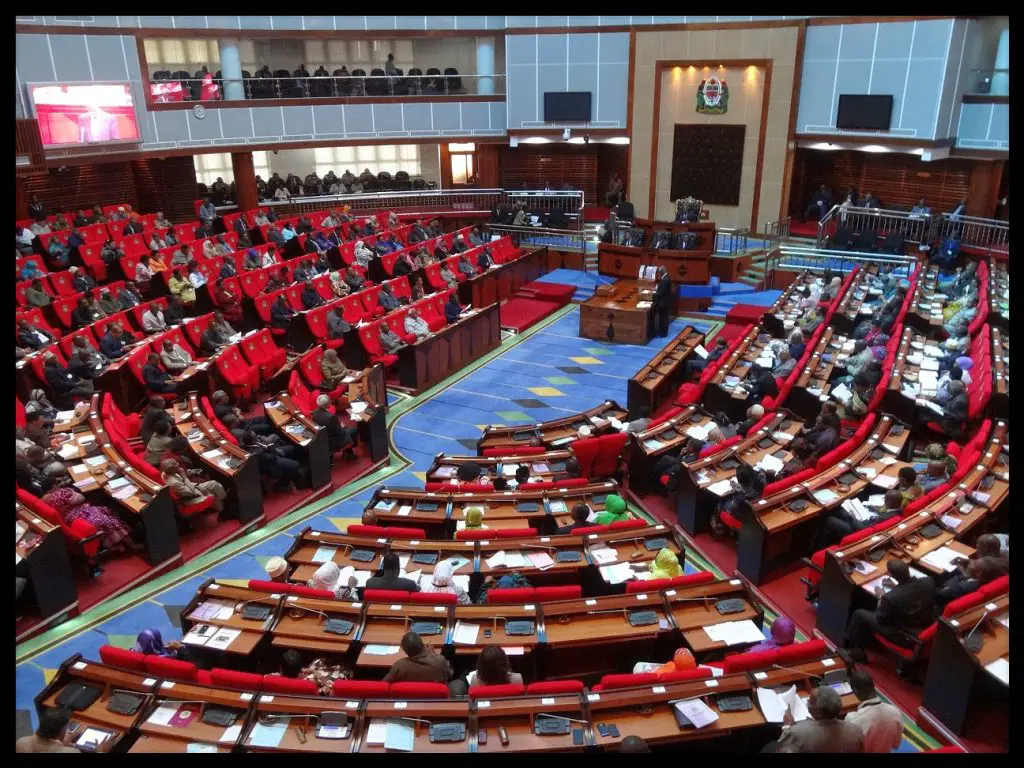- Africa’s new dawn: the rising role of digital and AI in agriculture
- Can Dangote Refinery Transform Africa Energy Ambition
- Gallup Survey: 80 per cent of Kenyan Workers Are Disengaged and Seek New Opportunities
- Madagascar Man Freed from 5KG Tumor After 15-Year Struggle
- How women in Africa are perceived and treated
- Sugar consumption in Kenya to Increase to 1.23 Million Tonnes
- Can Somalia and Turkey Oil deal Bring Change in Somaliland
- Remittances to Kenya dropped to $371.6 million in June, marking a six month low
Browsing: Entrepreneurship
- Mars Wrigley plans to roll out a fresh entrepreneurial initiative in Tanzania in 2024 and Rwanda, in 2025.
- The programme has already registered great strides in Kenya where it has been running since 2013, benefiting 1,600 traders, including 700 women.
- Wrigley now says it will recruit another 1,000 entrepreneurs in Kenya before the end of the year, bringing the total to 2,600.
Mars Wrigley, the world’s leading manufacturer of chocolate and chewing gum, has revealed plans to expand its entrepreneurial programme into Tanzania and Rwanda in regional expansion drive. As part of the company’s innovative distribution model, the Maua programme targets low-income consumer market in the region.
Speaking at the company’s factory and head office in Machakos County, Kenya, during at a ceremony to mark the tenth anniversary of Maua, Mars Wrigley General Manager, Sub-Saharan Africa, Ismael Bello said the company will roll out the initiative in Tanzania in 2024 …
- The Annual Investment Meeting and Emirates Angel Investors Association agree to turn UAE into a thriving base for startups.
- The collaboration is expected to create a positive impact on the United Arab Emirates’ startup ecosystem.
- The partnership will link startups with a wide network of investors, as well as the necessary resources and mentorship.
The Annual Investment Meeting (AIM) and Emirates Angel Investors Association (EAIA) have joined forces to strengthen their efforts towards promoting startups. The collaboration between AIM and EAIA is expected to create a positive impact on the United Arab Emirates’ startup ecosystem. The UAE has been a fertile base for establishment and growth of startups.
The partnership will provide startups with access to a wide network of investors. Benefitting entrepreneurs will also access necessary resources and mentorship to help them grow and succeed.
Commenting on the partnership, Director General of AIM Walid A. Farghal said, “The purpose …
Tax relief or a better legal framework for SMEs and start-ups would have been a major milestone for Tanzania’s private sector development agenda, however, the Finance Act does not address the heavy burden that start-ups and SMEs face when doing business in Tanzania and furthermore the proposed allocation of local government to the improvement of local entrepreneurship infrastructure was proposed, it was subsequently removed along with the contribution of local government finances to women entrepreneurs as well.
It would have been an opportunity for the Finance Act to enact amendments to certain Anti-Money Laundering Act and Economic Crimes Act provisions that treat tax offences as economic crimes or money laundering offences that are unbailable offences when they should be treated as tax offences that attract hefty fines and/or penalties.
Other areas that could have been amended are the problematic provisions of the Tax Administration Act including section 52(10) which provides …
World Bank further notes that the unified digitisation of the East African economy is estimated to generate up to a US$2.6 billion boost in GDP and 4.5 million new jobs that will largely benefit those at the bottom of the pyramid.
Data by GSMA reveals that by the end of 2020, 495 million people subscribed to mobile services in Sub-Saharan Africa, representing 46 percent of the region’s population, an increase of almost 20 million on 2019.
GSMA revealed that smartphone connections will more than double by 2025 in Sub-Saharan Africa with the East African Community registering the largest incremental growth, led by Rwanda and Tanzania. …
Entrepreneurs are catalysts for business.
They have a highly desirable and fundamental effect on the wider economy through establishing new businesses of providing not only goods and services to customers but also providing job opportunities to individuals in various industries.
No country can survive without a thriving breed of entrepreneurs! They literally keep the wheels of the economy turning through their activities. …
Covid-19 has hit small businesses hardest and around the world, many are either still struggling or they have already shut down almost two years after the pandemic started.
The pandemic has caused large-scale loss of life and severe human suffering globally and as the largest public health crisis in our time, the pandemic has also generated a major economic crisis. 2020 saw a halt in production in affected countries, a collapse in consumption and confidence, and stock exchanges responding negatively to heightened uncertainties.
In Africa, things are no different and despite the hit by the pandemic, a June 2021 African Development Bank (AfDB) White Paper, Entrepreneurship and Free Trade: Africa’s Catalysts for a New Era of Economic Prosperity, states that entrepreneurship must be at the heart of efforts to transform Africa’s economic prospects.
Read: Why Kenya’s small businesses are choking
The Covid-19 crisis has triggered shifts that open up …
However, long-term trends, assessed in decades rather than years, demonstrate that African countries are becoming increasingly appealing as investment locations. All of this is taking place in the world’s last demographic dividend region: Sub-Saharan Africa will soon be the only place on the planet with birth rates at or above replacement level. Telecommunications platforms, agribusiness, and energy are all emerging as new value chains.
However, the shift away from extractive sectors isn’t solely due to improved investment climates in Sub-Saharan Africa – extractives, for example, account for a lesser portion of total investment, but the rate fluctuates in reaction to oil prices. Other countries in the Global South have advanced, resulting in increased labour costs and mature consumer markets, implying reduced long-term profits.…
Kenya is one of the most diversified and fastest growing economies in Africa, with an average growth rate of 5.7%, inching closer by the day to its ambitious vision of becoming a middle-income country in the next decade. Central to this robust growth has been the invaluable contribution made by co-operatives, popularly known as Savings and Credit Co-operative Societies (SACCOS); which not only play a pivotal role towards the country’s Gross Domestic Product (GDP), but also leave an ineffaceable mark in the lives of millions of members, so much so that the country was recently selected in a series of country studies by the renowned international co-operative research group, the U.S Overseas Co-operative Development Council (OCDC). …
In the last century, the fashionable and accepted route to success for young Africans was to complete their education and join the corporate world. A few university students aspired to become entrepreneurs; most educational institutions did not offer entrepreneurial programs. With few exceptions, African families used to guide their children to join a leading multi-national or work for a state institution, hoping they would climb the corporate ladder to become CEOs or at least senior management. That was prestigious until the paradigm shifted to tech entrepreneurship with the emergence of the computer, mobile and Internet industry in the latter part of the 20th century. Whilst a lot of African families have built successful entrepreneurial ventures in the past, this essay emphasis the growing move of corporates to tech entrepreneurship.
The likes of Dr. Nii Narku Quaynor who started Network Computer Systems (NCS) in 1988 and played a key role …
Winners of the 2020 edition of the Private Equity Awards Africa are set to be announced on 19 November 2020. There are 19 African focused private equity firms in the running for the house of the year position.
In the previous year’s awards, the house of the year award went to Development Partners International, a firm that manages over US$1.6 billion in pan-African private equity.
Several other subcategories will rate private equity firms in terms of deal size, the exit of the year, debt and infrastructure, and a portfolio company of the year. The competition also includes a category for the best advisors and fund administrators.
The London Business School Private Equity Institute in conjunction with the private equity awards advisory panel will make recommendations for the deserving winners.
The ultimate winners will be chosen by an autonomous panel of judges which comprises some of the …













